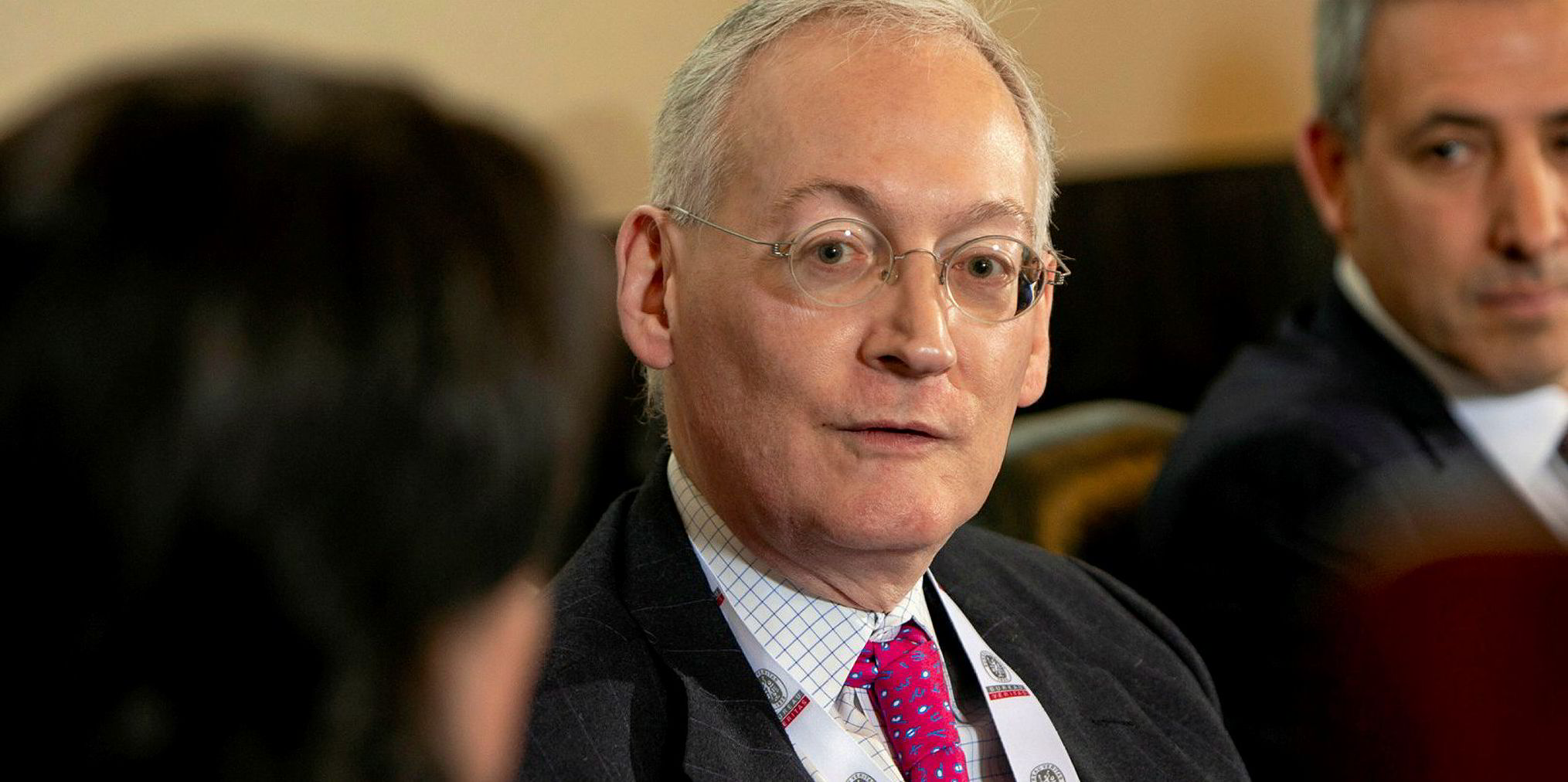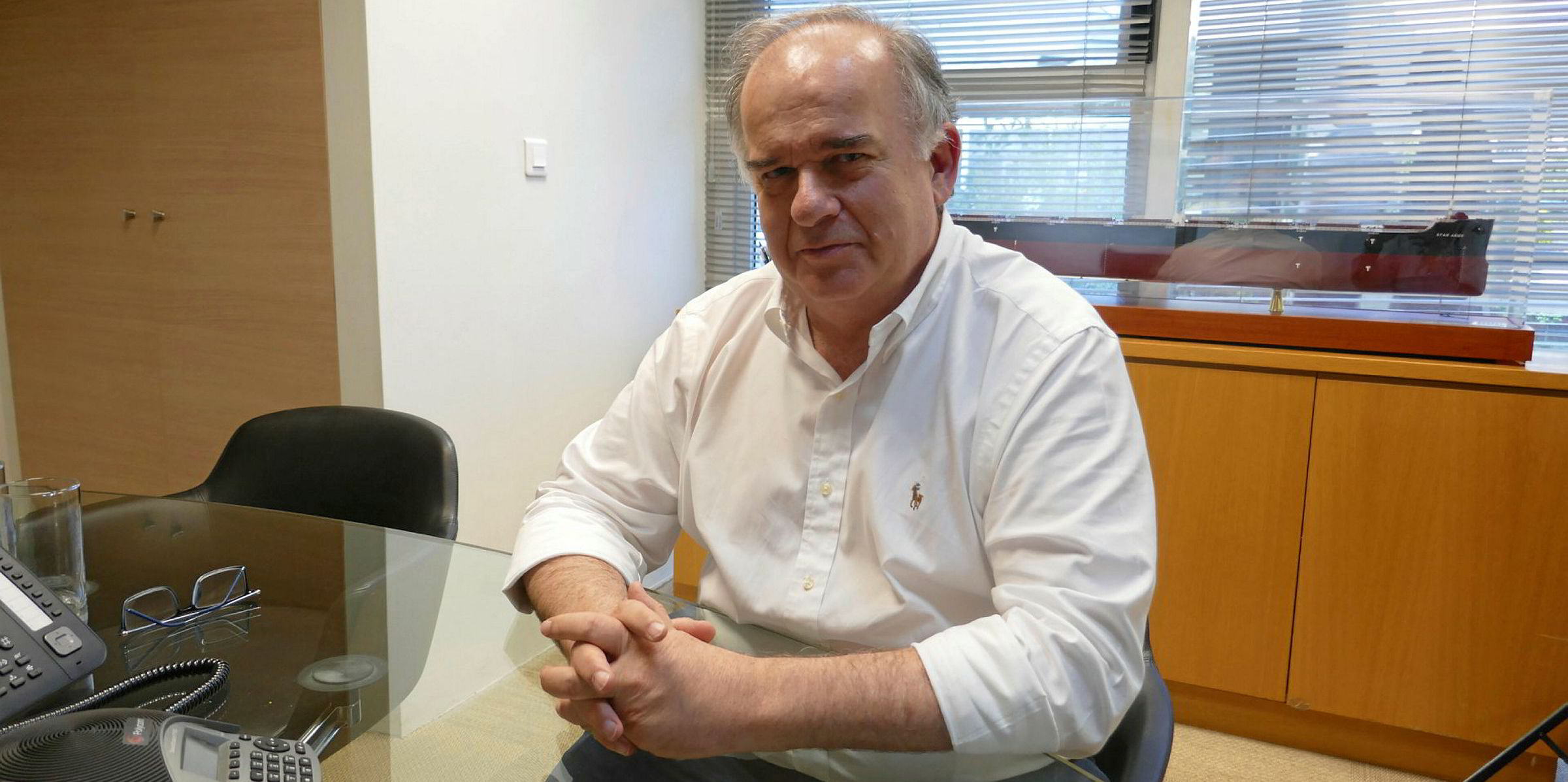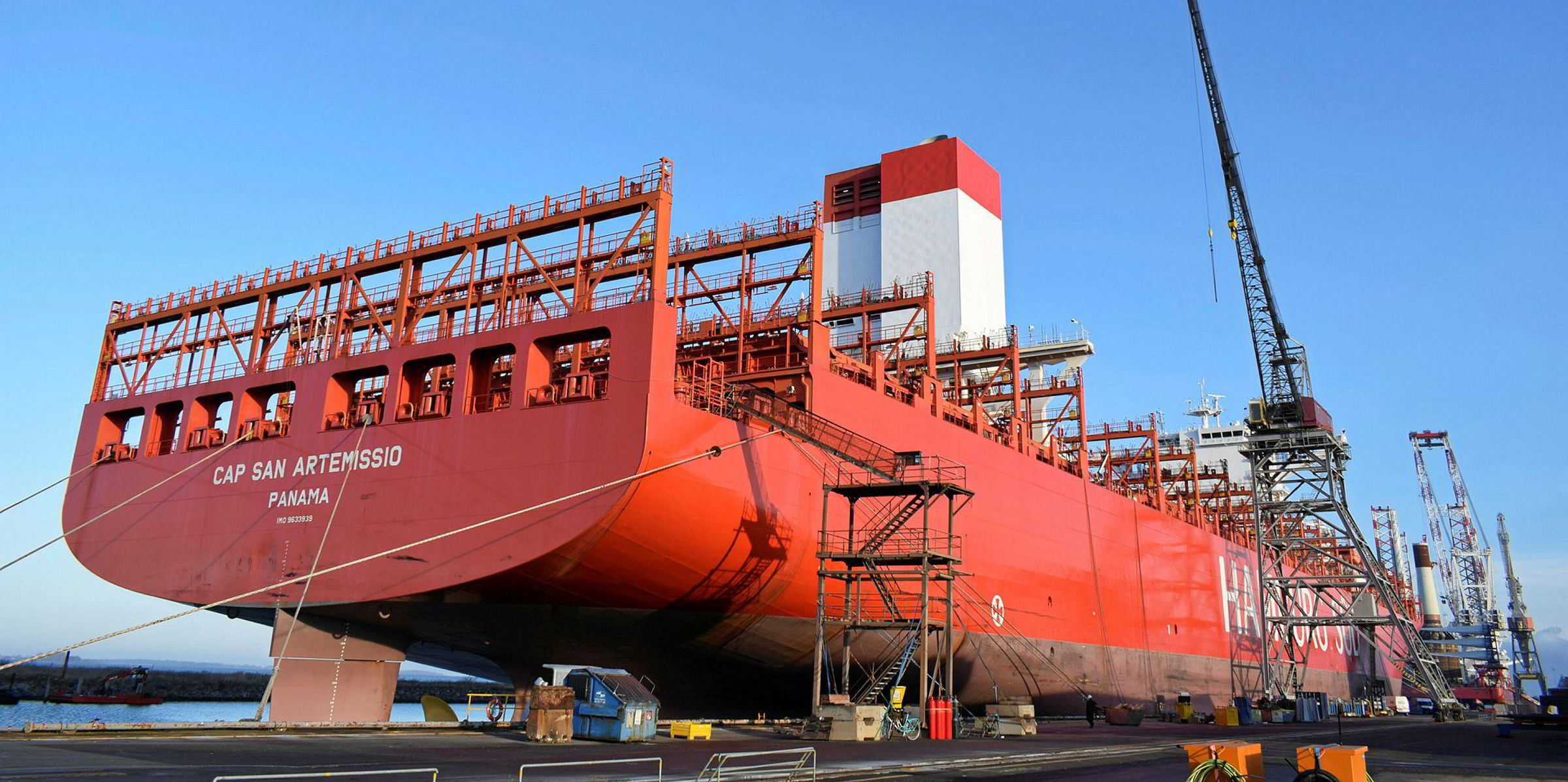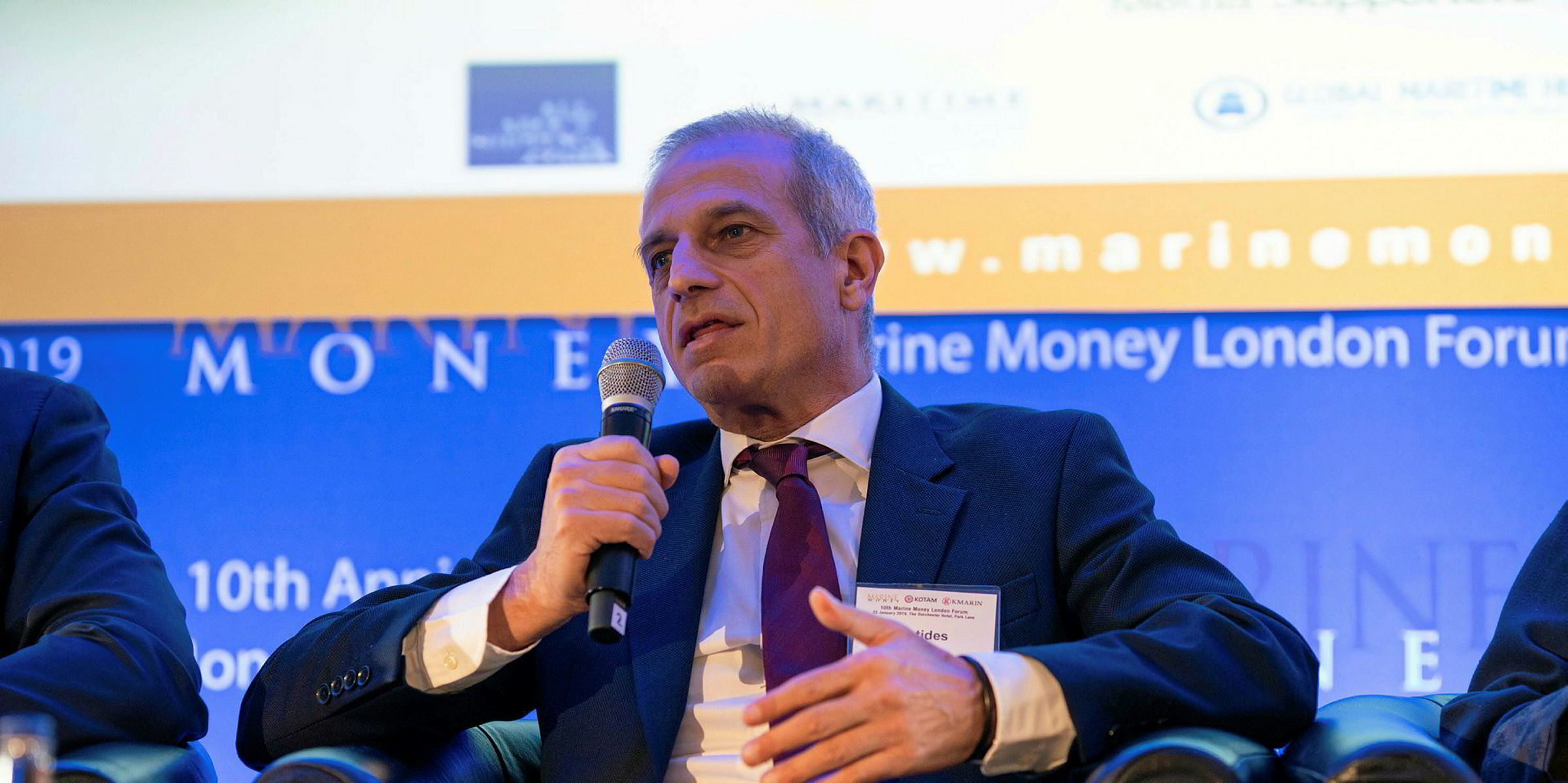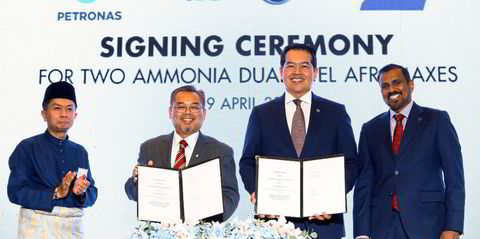After halting its plan to buy up other shipowners' fleets last quarter, Star Bulk Carriers has said that it will begin looking at consolidation opportunities once again.
During the bulker owner's earnings call with analysts, president Hamish Norton said Star Bulk's attitude has changed because there is less uncertainty surrounding the Covid-19 pandemic.
"Last quarter, we told people that at that time it probably was not a good time for consolidation because everybody was very uncertain as to the future and it was difficult to, basically, reach an agreement with anybody on a deal," Norton explained.
"I think that has changed. I think people are getting more comfortable with the current situation and the future, getting more comfortable with how the world will react to Covid-19."
Norton said the company would be interested in consolidation opportunities that fit with Star Bulk's existing operations and that would not increase the company's leverage.
But he said the Nasdaq-listed shipowner will not buy fleets for cash and would instead use its shares at net asset value (NAV).
"If we have an opportunity to do that, we will look at it very seriously," Norton said.
Investors should not expect to see Star Bulk acquire vessels in other sectors, however — unlike its competitor Scorpio Bulkers, which this week announced plans to order a wind turbine installation vessel.
"We would intend to make acquisitions within the dry bulk shipping market and not get into other markets at this time," Norton added.
No further need to raise cash
Norton said that Star Bulk does not need to do anything to raise extra cash, having last month drawn down $173m in loans to refinance 15 vessels and sealed deals to sell and lease back 16 ships by September for $274m in total.
"After all of the existing refinancing transactions close, we have projected so much cash that we probably don't need any more," he said during the call.
Star Bulk on Wednesday announced its plans to sell and lease back 16 ships by next month in exchange for $274m from four different buyers.
The proceeds will be used to refinance loan and lease agreements tied to the vessels.
Three of its newcastlemax bulkers will be sold in a $92.6m deal that includes a 10-year bareboat charter and purchase obligation.
The owner struck this deal, expected to close in September, with an undisclosed Chinese financial institution.
Star Bulk also penned an agreement with China Merchants Bank Leasing for seven ships in an $89m transaction that includes a purchase option at the end of a five-year bareboat charter.
The vessels involved in the deal, set to close next month, are the
- 63,399-dwt Laura (built 2015)
- 63,458-dwt Idee Fixe (built 2015)
- 63,246-dwt Roberta (built 2015)
- 63,283-dwt Kaley (built 2015)
- 56,582-dwt Diva (built 2011)
- 98,681-dwt Star Sirius (built 2011)
- 98,681-dwt Star Vega (built 2011)
Star Bulk has also entered into a sale-and-leaseback deal for five ships with SPDB Financial Leasing in exchange for $76.5m. The transaction is expected to finalise later this month.
The deal, which includes a purchase obligation at the end of an eight-year bareboat charter, involves the 63,226-dwt Mackenzie, 63,262-dwt Kennadi (both built 2016) and the 61,300-dwt sisterships Honey Badger, Wolverine and Star Antares (all built 2015).
Finally, Star Bulk has signed a sale and leaseback deal worth $16m for the 61,347-dwt Star Lutas (built 2016) with an undisclosed Japanese financial institution.
That deal is expected to close by the end of September and carries a purchase obligation at the end of a seven-year bareboat charter.
"We're in a situation where we look out as far as we can see and we don't see a cash problem at all."
This means that no further sale-and-leaseback deals are on the cards for now, as Christos Begleris, Star Bulk's co-chief financial officer, explained.
"Theoretically we could refinance the entire fleet with sale and leasebacks because the types [of deal] that we do have much lower leverage than more traditional sale-and-leaseback deals have been and at a much, much more competitive cost," he said.
"However, we will not put all our eggs in one basket."
Begleris added that the company is forging relationships with major shipping banks and leasing houses around the world.
"At times like these, which is a very difficult time for ship financings, it really helps to have very good relationships across a wide spectrum of financiers," he said.
This was met with approval by J Mintzmyer from Value Investor's Edge, who had asked the initial question about Star Bulk's cash position.
"It's good to hear that you feel that your cash runway is good. We wouldn't want to see what similar peers have had to do — dilutive offerings or advance themselves into very speculative industries — so I'm glad you're not following that path," Mintzmyer said.
Trading strategy
In the meantime, Star Bulk is focusing its capesize fleet on the spot market "because we are very positive about the next two quarters", according to Petros Pappas, the company's chief executive.
Many capesizes are currently not able to call in Australia because the Australian Maritime Safety Authority bars entry to vessels with crews who have been on board for more than 14 months, which is becoming common during the ongoing crew change crisis.
"This means that there potentially won't be enough vessels to trade in the Pacific going forward and especially in Australia. This could get rates up in the Pacific," Pappas said.
"Vessels that cannot disembark crews and, by definition, cannot enter Australia will have to start ballasting towards South Africa or Brazil et cetera and that could actually make the market in the Atlantic easier for charterers than the Pacific. We will see."
Pappas added that Star Bulk does not have a definite plan as to which basin it will send its vessels, but said that the company expects the Pacific market will spike again in the next five months.
"We see Brazil exporting probably 50m tonnes or 55m tonnes [of iron ore] more than during the first half of the year," he said.
"If that is correct, it would be in addition to the Australian exports and that would mean that we would need 150 to 160 capes more to do the job."
Fleet supply is being hampered by inefficiencies such as the need to deviate to ports to disembark the crews, which can take days, he said.
"Right now, there are almost 70 bulkers in Manila waiting to disembark their crews," he added.
"With all that, with the additional tonnes [of cargo] and the inefficiencies in the market and more bauxite from West Africa, we believe that we will be seeing a very strong market so we will keep the fleet [trading] spot."
